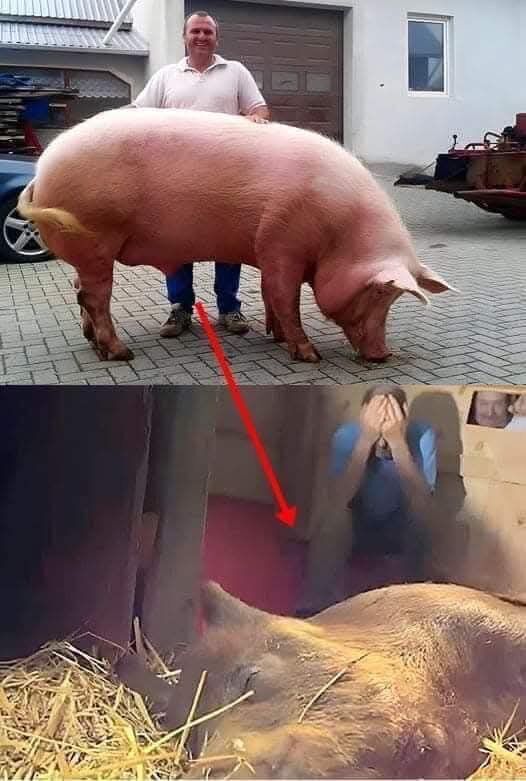When Emma the pig first arrived at Apricot Lane Farm in California, she was in a state that would alarm even the most seasoned animal caretakers. Sick, weak, and heavily pregnant, she staggered into the farm, her body clearly struggling under the strain of impending motherhood. Chester, the farm owner, immediately recognized the gravity of the situation. Veterinarians who assessed her condition were cautiously pessimistic, warning that the odds of her carrying all her piglets safely to birth were slim. They predicted that she might be lucky to produce six healthy piglets, if any at all.
Chester felt a deep responsibility pressing down on him. He knew that the well-being of these animals depended on careful, continuous attention. Emma’s frailty made every step precarious, and he worried about her survival as well as the survival of the unborn piglets. The farm’s usual bustle faded into quiet urgency, every sound amplified in the small barn where she was resting. There was an unspoken tension in the air, a collective holding of breath, as everyone prepared for what could become a heartbreaking outcome.
